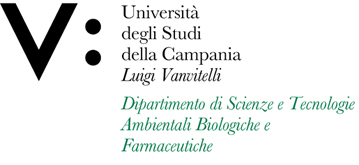Rosalba SENESE
Insegnamento di FISIOLOGIA DELLA NUTRIZIONE
Corso di laurea magistrale a ciclo unico in FARMACIA
SSD: BIO/09
CFU: 8,00
ORE PER UNITÀ DIDATTICA: 64,00
Periodo di Erogazione: Primo Semestre
Italiano
| Lingua di insegnamento | ITALIANO |
| Contenuti | Metabolismo energetico, bilancio energetico, dispendio energetico e differenti metodi di misurazione. Calorimetria diretta e indiretta. Termoregolazione. Tiroide. Ormoni tiroidei e regolazione del metabolismo. Apparato gastrointestinale. Fegato. Pancreas e componenti esocrina ed endocrina. Tessuto adiposo bianco e tessuto adiposo bruno. Il gusto. Regolazione dell’assunzione di cibo. Comportamento alimentare |
| Testi di riferimento | Fisiologia, a cura di P. Scotto e Paolo Mondola – Vari autori- Poletto Editore |
| Obiettivi formativi | Gli obiettivi formativi del corso sono quelli di far acquisire allo studente la conoscenza della funzione digestiva dell'uomo e dei sistemi che la regolano in condizioni fisiologiche, e dei meccanismi coinvolti nell’omeostasi energetica e ponderale. |
| Prerequisiti | Conoscenze e abilità fornite dal corso di Fisiologia Generale. |
| Metodologie didattiche | Lezioni frontali con presentazioni in power point. |
| Metodi di valutazione | L'esame consiste nel superamento di una prova orale i cui parametri di valutazione si basano sulla capacità di collegamenti critici, capacità di sintesi, qualità dell’organizzazione del discorso e dell’esposizione, uso del lessico specialistico, capacità di approfondimenti. |
| Altre informazioni | Lo studente si avvale delle slides delle lezioni e di articoli scientifici per l’approfondimento di argomenti di forte interesse comune |
| Programma del corso | Metabolismo energetico. Fonti energetiche - Energia chimica: utilizzazione - Lavoro interno e Lavoro esterno – Bilancio energetico – Dispendio energetico – Bomba calorimetrica – Valore calorico degli alimenti -Dispendio energetico di base o metabolismo basale - Calorimetria diretta - Calorimetria indiretta – Valore calorico dell’ossigeno – Quoziente respiratorio – Metabolismo basale nell’uomo e condizioni per la sua determinazione – Altri metodi e utilizzo di formule predittive per determinare il metabolismo di base e di attività. Fattori che influenzano il valore metabolico di base – Legge dell’area di superficie – Dispendio energetico di attività o metabolismo di attività – Attività metabolica negli eterotermi e confronto con gli endotermi. |
English
| Teaching language | Italian |
| Contents | Energy metabolism, energy balance, energy expenditure and different measuring methods. Direct and indirect calorimetry. Thermoregulation. Thyroid. Thyroid hormones and regulation of energy metabolism. Gastrointestinal apparatus. Liver. Pancreas and exocrine and endocrine components. White adipose tissue and brown adipose tissue. The taste. Regulation of food intake. Eating behavior. |
| Textbook and course materials | Fisiologia by P. Scotto e Paolo Mondola – Several authors - Poletto Editore |
| Course objectives | The objectives of the course are to provide the student with the knowledge of human digestive function and the systems that regulate it in physiological conditions, and of the mechanisms involved in energy and ponderal homeostasis. |
| Prerequisites | Knowledges and skills furnished by the course of General Physiology. |
| Teaching methods | Frontal classes using PowerPoint presentations. |
| Evaluation methods | The exam consists in passing an oral test whose evaluation parameters are based on the ability of critical connections, ability to synthesize, quality of the organization of the speech and of the exposition, use of the specialized vocabulary, capacity for further study. |
| Other information | Slides of the lectures, scientific articles for the study of topics of strong common interest. |
| Course Syllabus | Energy metabolism. Energy sources - Chemical energy: utilization - Internal work and external work - Energy balance - Energy expenditure - Calorimetric bomb - Caloric value of food - Basic energy waste or basal metabolism - Direct calorimetry - Indirect calorimetry - Caloric value of oxygen - Respiratory quotient - Basal metabolic rate in humans and conditions for its determination - Other methods and use of predictive formulas to determine basic and activity metabolism. Factors that influence the basic metabolic value - Law of the surface area - Energy expenditure of activity or metabolism of activity - Metabolic activity in the heterothermics and comparison with the endotherms. Temperature control. Chemical thermoregulation. Chemical thermogenesis: hormones, brown fat. Physical thermoregulation: Irradiation, Convection, Conduction, Evaporation. Temperature control system: central thermoceptors and peripheral thermoceptors. Thyroid hormones and energy metabolism regulation. Structure and synthesis of thyroid hormones - Secretion - Transport of thyroid hormones - Control of thyroid function - Role of peripheral diodases - Thyroid hormone receptors and mechanism of action - Physiological effects of thyroid hormones - Effects on oxygen consumption and heat production - Biological activity of other iodothyronines and effect on metabolism. |








